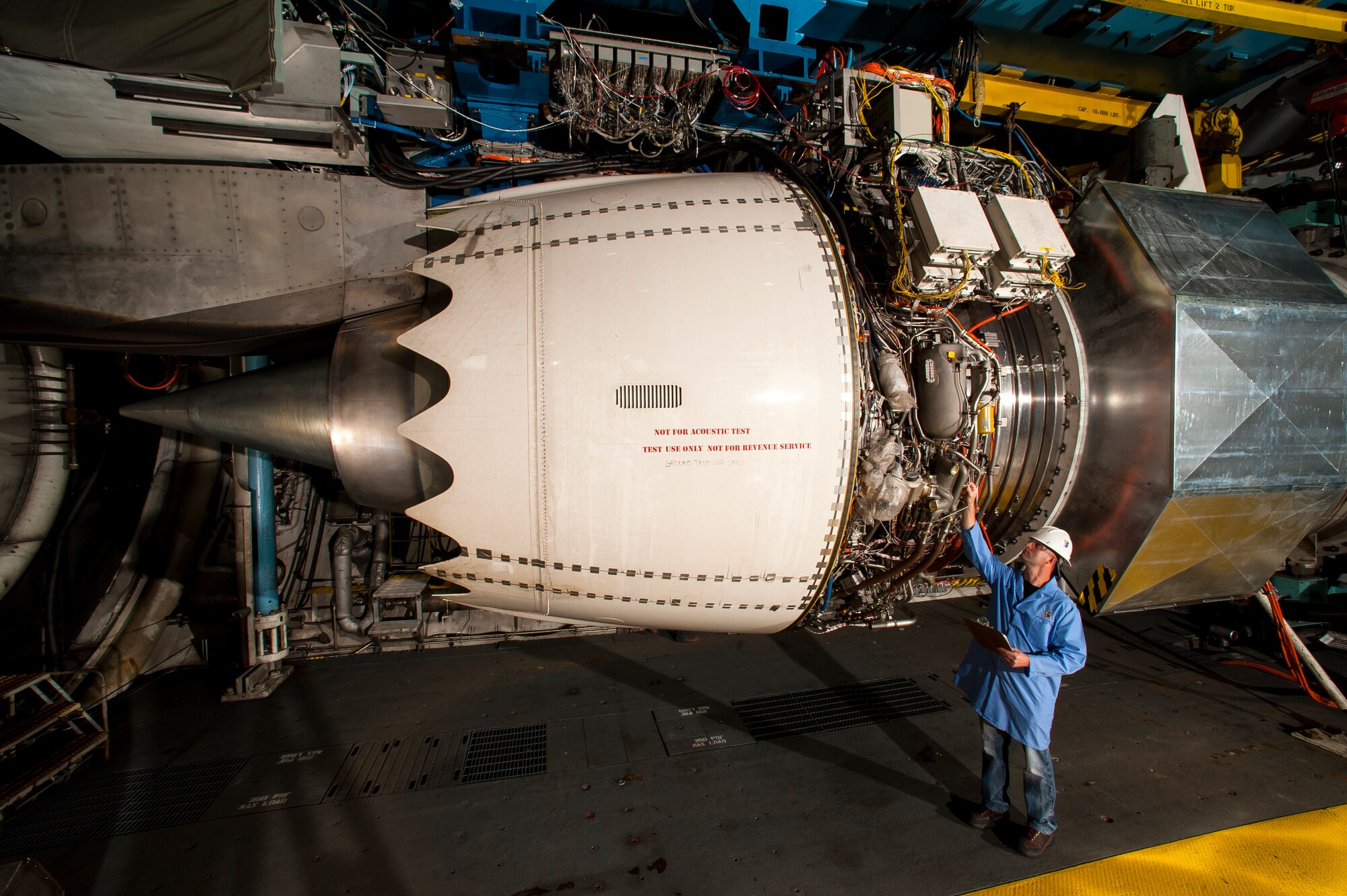ASTM D3338 Heat of Combustion Testing of Jet Fuels
The ASTM D3338 heat of combustion test is a critical procedure used to determine the energy content, or heating value, of jet fuels. This test plays an essential role in ensuring fuel quality and performance for aerospace applications. By accurately measuring the heat released during combustion, this testing method helps manufacturers ensure that their products meet stringent aviation standards.
The ASTM D3338 standard specifies a procedure to determine the heat of combustion (HOC) of jet fuels using an oxygen bomb calorimeter. This test is particularly important for aerospace and aviation industries due to the high stakes associated with fuel performance in flight environments. The HOC provides valuable insights into the energy efficiency of different fuel types, which can impact aircraft range, engine performance, and overall operational costs.
The process involves placing a known mass of jet fuel into an oxygen bomb calorimeter, where it is combusted under controlled conditions. The resulting temperature increase in the calorimeter is measured, allowing for the calculation of the heat released during combustion. This value reflects the energy content per unit mass or volume of the fuel.
The importance of this test cannot be overstated, especially given the increasing demand for more efficient and environmentally friendly aviation fuels. By adhering to ASTM D3338 standards, manufacturers can ensure that their products meet not only regulatory requirements but also the expectations of customers seeking higher performance and lower emissions from their fuel suppliers.
For R&D engineers and quality managers involved in the development and procurement of jet fuels, understanding the ASTM D3338 testing procedure is crucial. This test helps in optimizing fuel formulations to maximize energy output while minimizing waste and environmental impact. For compliance officers responsible for ensuring product standards are met, this test provides a reliable method for validating fuel specifications.
The ASTM D3338 heat of combustion test is not only important for aviation but also has broader applications in the propulsion industry. It ensures that fuels used in military aircraft, space vehicles, and other advanced propulsion systems meet the necessary performance criteria. By using this standardized testing procedure, manufacturers can ensure fuel quality across various sectors while adhering to international standards.
Given the complexity of modern fuels and their role in global aviation operations, it is vital for industries to rely on accurate and consistent testing methods like ASTM D3338. This ensures that all parties involved—from raw material suppliers to final consumers—are working with high-quality products that meet industry specifications.
Why It Matters
The ASTM D3338 heat of combustion test is pivotal in the aerospace and aviation sectors because it directly impacts fuel efficiency, safety, and environmental considerations. Accurate measurement of the heat released during combustion ensures that fuels deliver optimal performance across various engines and applications.
- Enhanced Efficiency: By determining the exact energy content of jet fuels, this test helps in optimizing fuel formulations to achieve higher power output with minimal waste.
- Safety Assurance: Ensuring consistent heat release during combustion reduces the risk of engine failure or other hazardous incidents that could jeopardize flight safety.
- Environmental Impact: Understanding the energy content allows for the development of more environmentally friendly fuels, reducing emissions and contributing to sustainable aviation practices.
- Regulatory Compliance: Adherence to ASTM D3338 ensures that fuel suppliers meet international standards, thereby maintaining a level playing field in global markets.
In summary, the ASTM D3338 heat of combustion test is essential for maintaining high standards in aerospace and aviation testing. It supports continuous improvement in propulsion technology while ensuring safety, efficiency, and environmental responsibility.
Applied Standards
The ASTM D3338 standard specifies the procedure for determining the heat of combustion (HOC) of jet fuels using an oxygen bomb calorimeter. This method is widely recognized and utilized in the aerospace and aviation industries to ensure fuel quality and performance.
The key aspects of this standard include:
- Sample Preparation: Samples must be prepared according to ASTM guidelines, ensuring that they are representative of the fuel being tested.
- Oxygen Bomb Calorimeter: The use of an oxygen bomb calorimeter is mandated to ensure accurate measurement of heat release during combustion.
- Data Interpretation: Results from the calorimeter must be interpreted according to ASTM D3338, providing a reliable measure of fuel heating value.
The application of ASTM D3338 ensures that all parties involved in aerospace and aviation testing adhere to international standards. This consistency is crucial for maintaining quality across different fuel types and applications. By following this standard, manufacturers can ensure that their products meet the necessary performance criteria and regulatory requirements.
For R&D engineers and procurement professionals, familiarity with ASTM D3338 is essential. It provides a standardized approach to testing that ensures reliability and accuracy in results. Compliance officers also benefit from understanding this standard, as it helps them verify that fuels meet specified standards, thereby ensuring consistent quality across the supply chain.





